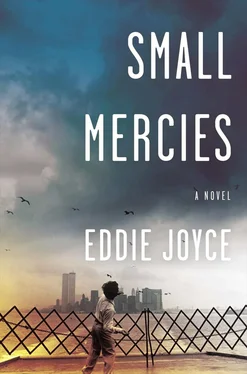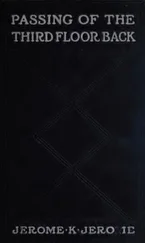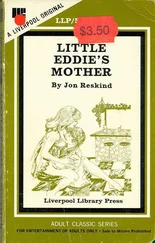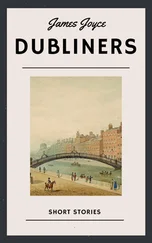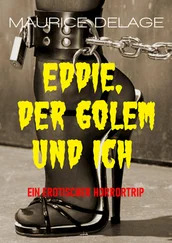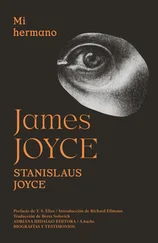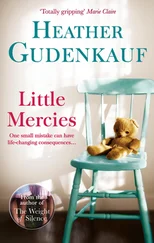He tells Michael this weeks later in the hospital. His lungs on the mend, his life rescued.
“I saw you attending my funeral, comforting Terry.”
“I would have enjoyed comforting Terry.”
They laugh because that’s all you can do. When death taps you on the shoulder and you manage to slip away, you laugh. To do anything else would be madness.
How do you feel when you walk out of the hospital room and his family is there? When his wife hugs you and you feel her wet tears on your chest? When his daughter hands you a picture she drew for you of you carrying her father out of a burning building? When his son thanks you and runs in to see his daddy and you know that you made this moment possible, that you created it?
You feel like a god. Anyone who says different is lying.
So Michael has to remind himself what Gus used to tell him: that feeling like a god is as dangerous as the fire itself. He is only a man, one with a new wife and a kid on the way. A man who doesn’t want to see the city burn, but who doesn’t want it to burn him or those he cares about either. A man who can’t afford Westchester or Connecticut, who can’t fathom Long Island, who doesn’t want New Jersey.
Michael knows what to do, where to go. He knows a place that is still safe, an idyllic patch in the ravaged city. Right over a bridge. Staten Island. He’s always intended to return. After they got married, he and Gail moved into an apartment in Bay Ridge, a temporary concession to Gail’s desire to be close to her parents and to the demands of his job. They had no car. They had no money. It was easier to live in Brooklyn, easier to get to work and to save money. But it’s been almost two years in that tiny, cramped apartment and he is sick of it. He wants some space, some fresh air. It’s time to put their plan in motion, time to look for a house on Staten Island.
Actually, this is his plan. He has never articulated it to Gail; he has assumed her acquiescence. An apartment is fine for the two of them, but he wants his children raised in a proper house.
An opportunity has knocked, as they say, and though it’s sooner than he would have liked, you have to strike when the iron is hot, as they also say. He is fond of his sayings. He grew up in a house where the adages were in Italian, so the English ones hold more allure for him. A house for sale in Great Kills. Cheap.
Why the discount?
“Older couple, no kids. Died within a month of each other. They were renting from the bank. No one can remember why we own it in the first place. Couple lived there for forty years. We want to sell it,” whispers Tiny Terrio into the other end of the phone. Tiny works at a bank on Staten Island. The bank that wants to sell the house. A bank that could give them the mortgage, Tiny mentions, if they can move quickly and if they have ten thousand dollars to put down.
Michael hangs up the phone and frowns. He is nine thousand dollars short. The door to their apartment opens and Gail walks in. Her blue eyes are blood-shot and her face is blotchy. She has been crying.
“I’m pregnant,” she says.
There are no coincidences in life. Michael isn’t sure if this is a saying or not, but it’s what he believes. You do not get a phone call from your best friend about a house in one minute and your wife telling you she’s pregnant in the next for no reason at all. The next day Michael has off, Enzo picks him up and they drive across the Verrazano together.
The bridge is beautiful, a majestic baby blue span in the sky, soaring above a strip of water called the Narrows, giving all who cross it a panoramic view of New Jersey, then Staten Island, Jersey again, New York Harbor, the Manhattan skyline, the low-lying infinitude of Brooklyn, and finally, a glimpse of eternity in the Atlantic Ocean. It is a bridge that explains New York, reveals why it soared to greatness in the first place. It’s a bridge that should be loved, but somewhere deep inside him, Michael is starting to hate it. He is starting to think that Gus Feeney was right: it’s going to ruin Staten Island.
The car descends on the Staten Island side of the bridge and Michael feels peaceful, happy to be in a place more green than gray. They meet Tiny on a dead-end street in Great Kills. Wirra Lane. It’s a little farther out than Michael would like. His parents’ house, in Dongan Hills, is ten minutes closer to the bridge. The house is run down, will need some work. The backyard has been neglected for years. Weeds and bushes grow unimpeded. But the structure is sound. There are three bedrooms, a basement, a nice-size kitchen with a quaint bay window. It’s two quick turns from Hylan Boulevard, the thoroughfare that runs the entire length of the South Shore. They’d need a car, obviously, but if they had one, they could be at his parents’ house in four turns. The street is a good one; there’s space between the houses. When they drove up, a flock of young kids was playing Wiffle ball at the end of the street. Not a lot of car traffic. Bicycles lie unguarded in front of houses.
They stand outside, the three of them, and consider the house.
“Tiny, excuse,” Enzo says. He puts his heavy butcher’s hand on Michael’s shoulder and guides him to the side of the house. Michael looks over his shoulder at Tiny, who is leaning against his car, gently pulling at the knot of his tie. It is humid; they are all sweating.
“Take it,” Enzo says. He smells of sausage, of chicken and pork, of bone and blood. His English regresses when he’s being urgent. “You take it.”
“Dad, I can’t afford it.”
“You borrow from us.”
“We can’t pay you back soon.”
“Doesn’t matter. You pay back when you can.”
Enzo looks at the house. He still has an immigrant’s eye for deals. Michael almost tells him about Gail right then, but superstition holds him back; it’s very early. He looks at his father and wonders: How did you land here, Enzo, of all places? Not Brooklyn or the Bronx. Not Little Italy or Bensonhurst or Pleasant Avenue. Here. It is one of many questions he will never ask his father.
Enzo smiles. They hug.
“Is good. Is good. Bellissimo .”
They walk over to Tiny, who’s smiling as well. They all shake hands. On the way back to Brooklyn, Michael thanks his father, reminds him that repayment will be a long time coming.
“Is okay. You work at shop.”
Michael nods, the slightest stain spreading across his happiness. Enzo has never understood Michael’s fascination with being a firefighter. But he has never said what he thinks: Why risk your life for strangers? He will wait for Michael, will hold on to the shop. He still thinks he can cajole his son back into the fold. Michael knows better. He will work at the shop, he will do what needs to be done. And then he will walk away because that is not the life he wants. He sees the smile on Enzo’s face and smiles in return. He knows what his father is thinking, knows his father is wrong.
Enzo drops Michael outside the Tankard, a restaurant where Gail waits tables a few nights a week. He walks in, says hello to the regulars he recognizes. He is brimming with the confidence of a man whose future is certain. He orders a beer, places a ten on the bar. Gail walks over, still shaken by the unexpected news, still not herself.
“You’re a happy camper.”
“I am.”
He takes a sip of beer. He may be only a man, but he is a good one, a good husband. He is a solver of problems, a finder of solutions.
“We’re buying a house.”
She turns her chin up and to the right. Her eyes narrow. She makes this little face whenever she’s not sure whether he’s serious. He clinks his bottle against the brass rail she’s leaning on. The happiness is flowing out of him. She can tell he’s serious.
Читать дальше
